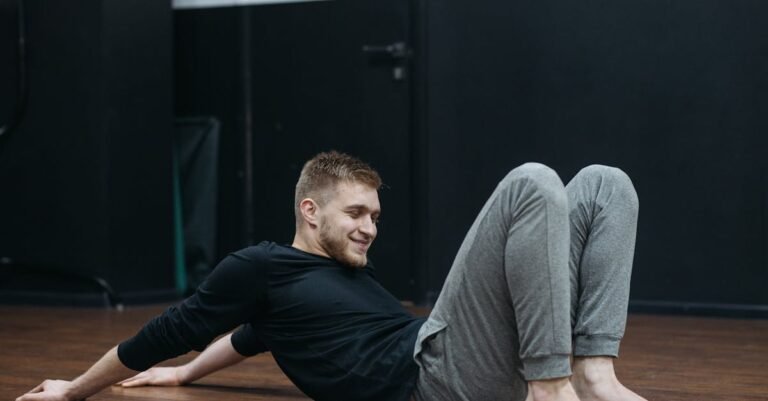Table Of Contents
- How To Choose A Personal Trainer Wisely: Your Ultimate Guide
- Why Bother With a Personal Trainer Anyway?
- Step 1: Define Your Fitness Goals (Get Specific!)
- Step 2: Credentials and Certifications Matter (A Lot!)
- Step 3: Experience and Specialization: Finding Your Niche
- Step 4: Personality and Training Style: The “Fit” Factor
- Step 5: Logistics: Location, Availability, and Cost
- Step 6: The Consultation and Trial Session: Test Drive Time!
- Step 7: Trust Your Gut: Making the Final Decision
- Conclusion: Investing in Your Health Wisely
- Frequently Asked Questions (FAQs)
How To Choose A Personal Trainer Wisely: Your Ultimate Guide
So, you’re thinking about getting a personal trainer? Awesome! That’s a huge step towards taking your health and fitness seriously. But hold on a sec… choosing the right personal trainer isn’t quite like picking out a new pair of running shoes. It’s a bit more personal, a bit more involved, and frankly, it can make or break your fitness journey. Think of it like choosing a guide for a challenging mountain climb – you want someone experienced, reliable, and someone you actually trust, right? Picking the wrong one could leave you lost, injured, or just plain unmotivated. Picking the right one? Well, that could lead you to achieve things you never thought possible.
Navigating the world of personal trainers can feel overwhelming. Everyone seems to have six pack abs and a flashy Instagram profile these days. But how do you separate the truly knowledgeable professionals from the weekend warriors with a questionable online certification? How do you find someone who understands your body, your goals, and your limitations? Don’t sweat it (yet!). We’re here to break it all down, step by step, so you can confidently find the perfect fitness partner to help you smash those goals.
Why Bother With a Personal Trainer Anyway?
Let’s be real. Gym memberships, workout apps, free online videos… there are tons of ways to exercise without hiring someone. So, why shell out the extra cash for a personal trainer? Is it really worth it?
The Benefits: Beyond Just Counting Reps
A good personal trainer does so much more than just count your push ups or tell you to “feel the burn.” They are your personal fitness strategist, motivator, and accountability partner rolled into one. Here’s a taste of what you gain:
- Personalized Plan: Forget cookie cutter workouts. A trainer designs a program specifically for your body, goals, fitness level, and any limitations or injuries you might have. It’s tailored, like a bespoke suit, but for your muscles.
- Proper Form & Technique: This is HUGE. Doing exercises incorrectly isn’t just ineffective; it’s a recipe for injury. A trainer watches you like a hawk, ensuring you’re moving safely and efficiently to maximize results and minimize risk.
- Motivation & Accountability: Some days, the couch just looks so much more appealing than the gym. Knowing your trainer is waiting for you is powerful motivation. They push you when you want to quit (in a good way!) and celebrate your wins, big or small.
- Efficiency: Stop wasting time wandering around the gym wondering what to do next. Trainers create focused, efficient workouts designed to get you the best results in the time you have available.
- Breaking Plateaus: Stuck at the same weight or strength level for ages? A trainer knows how to mix things up, introduce new challenges, and push your body past those frustrating plateaus.
- Education: Good trainers teach you why you’re doing certain exercises and how your body works. This knowledge empowers you to make smarter fitness choices even outside your sessions.
Is a Trainer Right for You?
While trainers offer incredible benefits, they aren’t necessarily for everyone, or maybe not for every stage of your fitness journey. Consider if you:
- Are new to exercise and unsure where to start.
- Have specific goals (like training for an event, recovering from injury, or significant weight loss) and need expert guidance.
- Struggle with motivation and consistency on your own.
- Feel stuck in your current routine and aren’t seeing results.
- Have health concerns or previous injuries that require careful exercise programming.
- Are willing to invest time and money into achieving your fitness goals.
If you nodded along to a few of these, then investing in a personal trainer could be a game changer for you.
Step 1: Define Your Fitness Goals (Get Specific!)
Okay, you’re sold on the idea of a trainer. First things first: what do you actually want to achieve? Saying “I want to get fit” is like telling a taxi driver “Take me somewhere nice.” It’s too vague! You need a destination.
Weight Loss, Muscle Gain, Performance, or Health?
Think about your primary motivation. Are you looking to:
- Lose Weight: How much? By when? Is it about the number on the scale or how your clothes fit?
- Build Muscle/Strength: Do you want to bulk up, tone specific areas, or be able to lift heavier things (like your groceries, or maybe a small car)?
- Improve Athletic Performance: Training for a marathon? Want to improve your golf swing? Need sport specific conditioning?
- Boost General Health & Wellness: Maybe you want more energy, better mobility, reduced stress, or improved cardiovascular health?
- Rehabilitation/Injury Prevention: Coming back from an injury or trying to prevent future ones?
Knowing your main objective helps you find a trainer with the right expertise. A trainer who excels at bodybuilding might not be the best fit if your goal is running your first 5k.
Setting SMART Goals with Your Future Trainer in Mind
Once you know the general direction, get specific using the SMART framework:
- Specific: Instead of “get stronger,” try “Be able to do 10 unassisted pull ups.”
- Measurable: How will you track progress? “Lose 15 pounds” or “Decrease my mile time by 30 seconds.”
- Achievable: Be realistic. Aiming to lose 30 pounds in a month isn’t healthy or sustainable. Consult with potential trainers about realistic timelines.
- Relevant: Does the goal align with your overall desires? Why is this important to you?
- Time bound: Set a deadline. “Run a 10k race in 6 months” or “Fit into my pre pregnancy jeans by my birthday.”
Having clear SMART goals makes it much easier to communicate your needs to potential trainers and helps them design the most effective plan for you.
Step 2: Credentials and Certifications Matter (A Lot!)
This is non negotiable. You wouldn’t let an unlicensed electrician rewire your house, would you? Similarly, you shouldn’t trust your body and health to someone without proper qualifications. The fitness industry can be a bit like the Wild West, so checking credentials is your first line of defense.
Decoding the Alphabet Soup: Reputable Certifications
Not all certifications are created equal. Some require rigorous study, hands on training, and passing difficult exams, while others… well, let’s just say they can be obtained online over a weekend. Look for certifications from accredited organizations. Some of the most respected in the US include:
- NSCA: National Strength and Conditioning Association (CSCS, NSCA CPT)
- ACSM: American College of Sports Medicine (ACSM CPT, EP C, CEP)
- NASM: National Academy of Sports Medicine (NASM CPT, PES, CES)
- ACE: American Council on Exercise (ACE CPT, Health Coach)
These organizations require trainers to pass comprehensive exams and maintain their certification through continuing education, ensuring they stay up to date with the latest research. A degree in a related field like Kinesiology, Exercise Science, or Physical Therapy is also a huge plus.
Don’t be afraid to ask a potential trainer: “What certifications do you hold?” and “Which organization are they through?” A qualified professional will be happy and proud to share their credentials.
Red Flags: What to Watch Out For
While checking for good credentials, also keep an eye out for warning signs:
- No Certification or Vague Credentials: If they can’t name a specific, reputable certifying body, walk away.
- Guarantees of Unrealistic Results: “Lose 30 lbs in 30 days guaranteed!” Run. Real fitness takes time and effort.
- Pushing Supplements Heavily: While some supplements can be beneficial, a trainer’s primary focus should be on exercise and nutrition basics, not selling you products (especially if they get a commission).
- One Size Fits All Approach: If they give you the same workout as everyone else without a thorough assessment, they aren’t personalizing.
- Lack of Insurance: Professional trainers should carry liability insurance. Ask about it!
- Poor Communication or Listening Skills: If they talk more than they listen during your initial chat, that’s a bad sign.
Step 3: Experience and Specialization: Finding Your Niche
Okay, they’re certified. Great! But certification is just the foundation. Experience and specialization build the house. You want a trainer who not only knows the theory but has successfully applied it in practice, ideally with clients like you.
Does Their Experience Match Your Needs?
Think back to your goals. If you’re a 60 year old woman looking to improve bone density and balance, a trainer who primarily works with young male bodybuilders might not be the best fit, even if they’re highly certified. Ask potential trainers:
- “How long have you been training professionally?”
- “What types of clients do you typically work with?”
- “Do you have experience helping people achieve goals similar to mine?” (Give specific examples of your goals).
- “Can you share any success stories or testimonials from clients with similar objectives?” (Respecting client privacy, of course).
Someone with a proven track record of helping people just like you is invaluable.
Specialists vs. Generalists: Which is Better?
Some trainers are generalists, adept at helping a wide range of clients with common goals like weight loss or general fitness. Others specialize in specific areas, such as:
- Pre/Post Natal Fitness
- Senior Fitness
- Corrective Exercise/Post Rehab
- Sport Specific Training (e.g., marathon coaching, golf fitness)
- Specific Populations (e.g., clients with diabetes, Parkinson’s)
Is one better than the other? Not necessarily! It depends on your needs. If you have very specific requirements (like training after a hip replacement or preparing for a triathlon), seeking out a specialist makes sense. They’ll have deeper knowledge and more tailored techniques for your situation. If your goals are more general (get stronger, lose some weight, feel healthier), a highly experienced generalist can be fantastic. The key is matching their expertise to your unique situation.
Step 4: Personality and Training Style: The “Fit” Factor
This is where things get subjective, but it’s critically important. You’re going to be spending a significant amount of time with this person, often pushing your physical and mental limits. You need someone you connect with, trust, and whose style motivates you, rather than discourages you.
Drill Sergeant or Encouraging Coach?
Trainers have different approaches. Some are high energy cheerleaders, constantly offering praise and positive reinforcement. Others are more like drill sergeants – intense, demanding, and focused on pushing you hard. Some are quiet and analytical, focusing heavily on perfect form and explanation. There’s no single “right” style; it’s about what works for you.
Ask yourself: How do you best respond to challenges? Do you need loud motivation, or does that make you shut down? Do you prefer lots of technical explanation or just clear instructions? Be honest with yourself about what kind of interaction will keep you engaged and coming back for more. During your initial conversations or trial session, pay close attention to their communication style and how it makes you feel.
The Importance of Communication
Beyond their motivational style, assess their overall communication skills. Does the trainer:
- Listen attentively to your concerns and goals?
- Explain exercises clearly and concisely?
- Provide constructive feedback in a way you understand?
- Check in with you during exercises about how you’re feeling?
- Seem genuinely interested in your progress and well being?
- Respond promptly to your messages or questions outside of sessions (within reason)?
A good trainer client relationship is a partnership built on clear, open, and respectful communication. If you feel like they aren’t listening or you’re hesitant to ask questions, it’s probably not the right match.
Step 5: Logistics: Location, Availability, and Cost
You could find the most qualified, experienced, perfectly matched trainer in the world, but if they train on the other side of town during your work hours and charge more than your rent, it’s just not going to work. Let’s get practical.
Convenience is Key: Finding a Trainer Nearby
Where will the training sessions take place? Common options include:
- A large commercial gym (“big box”): Often requires a gym membership in addition to training fees.
- A private training studio: Smaller, more focused environment, often less intimidating.
- Your home: Super convenient, but requires space and potentially some equipment.
- Outdoors/Park: Great for variety, weather permitting.
- Online/Virtual Training: Offers flexibility and wider choice, but requires self discipline and tech savviness.
Consider the travel time. If getting to your trainer is a major hassle, it becomes another barrier to consistency. Choose a location that fits seamlessly into your routine.
Scheduling Savvy: Does Their Availability Match Yours?
When are you realistically able to train? Early mornings? Lunch breaks? Evenings? Weekends? Good trainers are often busy, so you need to ensure their available slots align with yours. Discuss this early on. Ask about their cancellation policy too – life happens, and you need to know the procedure if you have to miss a session.
Budgeting for Fitness: Understanding Trainer Costs
Personal training is an investment. Rates vary wildly based on location, trainer experience, session length, and training environment (private studio vs. big gym). Expect to pay anywhere from $50 to $150+ per session, sometimes more in major cities or for highly specialized trainers.
Be clear about your budget. Many trainers offer packages (e.g., buying 10 sessions at once) that reduce the per session cost. Some offer shorter sessions (30 or 45 minutes) or small group training as more budget friendly options. Understand exactly what’s included in the price (session time, program design, nutritional guidance?). Get the payment terms and policies in writing.
Think of it not just as an expense, but an investment in your long term health, confidence, and quality of life. However, it still needs to fit within your financial reality.
Step 6: The Consultation and Trial Session: Test Drive Time!
Most reputable trainers offer a free initial consultation, and many offer a discounted or introductory trial session. This is your chance to “test drive” the trainer client relationship before committing long term. Don’t skip this!
What to Ask During the Consultation
This meeting is as much for you to interview them as it is for them to assess you. Come prepared with questions. We’ve covered many already, but here’s a checklist:
- Confirm their certifications and experience relevant to your goals.
- Discuss your health history, any injuries, and your specific goals (be detailed!).
- Ask how they typically structure sessions for someone like you.
- Inquire about how they track progress.
- Clarify their training philosophy and style.
- Discuss logistics: location, scheduling, cancellation policy.
- GET DETAILS ON PRICING AND PACKAGES. No surprises!
- Ask any other burning questions you have.
Pay attention not just to their answers, but *how* they answer. Do they seem knowledgeable, confident, and genuinely interested in helping you?
What to Look For During a Trial Session
If you proceed to a trial session, treat it like a real workout experience. Notice:
- Assessment: Do they perform some basic movement assessments to understand your current capabilities and limitations?
- Instruction: Are their exercise explanations and cues clear and easy to follow?
- Attention: Are they focused on you and your form, or are they constantly checking their phone or chatting with others?
- Adaptability: Can they modify exercises on the fly if something is too hard, too easy, or causes pain?
- Rapport: How do you feel during and after the session? Motivated? Discouraged? Comfortable? Intimidated?
- Professionalism: Are they punctual, prepared, and respectful?
This hands on experience is invaluable for gauging compatibility.
Step 7: Trust Your Gut: Making the Final Decision
You’ve done your homework. You’ve checked credentials, discussed goals, assessed experience, considered personality, confirmed logistics, and maybe even done a trial session. Now what? After evaluating all the practical factors, take a moment and listen to your intuition.
Do you feel comfortable and safe with this person? Do you feel genuinely motivated and supported? Do you trust their expertise and believe they have your best interests at heart? Sometimes, even if a trainer checks all the boxes on paper, something just feels… off. Conversely, you might really click with someone even if they aren’t the *most* experienced on paper (as long as they have solid, reputable credentials!).
Choosing a personal trainer is building a relationship. It requires trust, communication, and mutual respect. Don’t underestimate the power of that gut feeling. If everything aligns – qualifications, experience, personality, logistics, and your intuition – you’ve likely found your perfect match!
Conclusion: Investing in Your Health Wisely
Choosing a personal trainer is a significant decision, one that can profoundly impact your health and fitness journey. It’s not about finding the trainer with the biggest muscles or the most Instagram followers; it’s about finding the qualified, experienced, and compatible professional who can guide you towards your specific goals safely and effectively. By taking the time to define your objectives, verify credentials, assess experience and personality, sort out the logistics, and trust your gut feeling after a consultation or trial, you’re setting yourself up for success. It’s an investment, yes, but investing wisely in the right personal trainer is truly investing in a healthier, stronger, and more confident version of yourself. Now go out there and find your perfect fitness partner!
Frequently Asked Questions (FAQs)
1. How often should I see a personal trainer?
This really depends on your goals, budget, and level of experience. Beginners might benefit from 2 3 sessions per week initially to learn proper form and build a routine. More experienced individuals might see a trainer once a week or even bi weekly for program updates and check ins. Discuss frequency with your potential trainer based on your specific needs.
2. What’s the difference between online and in person training?
In person training offers direct, real time feedback on form, immediate adjustments, and hands on spotting. Online training provides flexibility in scheduling and location, potentially lower costs, and access to trainers anywhere in the world, but requires more self motivation and tech savviness, and lacks that immediate hands on correction.
3. Should my personal trainer also give me a detailed meal plan?
While many certified personal trainers have basic nutrition knowledge and can offer general healthy eating guidance, creating specific, detailed meal plans often falls under the scope of a Registered Dietitian (RD) or licensed nutritionist. Some trainers hold dual certifications, but be wary of trainers providing highly specific dietary prescriptions unless they have the proper nutrition credentials. They should focus primarily on exercise programming.
4. What if I don’t like my trainer after a few sessions?
It happens! First, try communicating your concerns directly to the trainer. Perhaps a simple adjustment in style or focus is all that’s needed. If things still aren’t working, review the contract or agreement you signed. Most trainers or gyms have policies for switching trainers or discontinuing services. Don’t feel obligated to stick with someone who isn’t a good fit – your progress and comfort are paramount.
5. Is it okay to interview multiple trainers before choosing one?
Absolutely! In fact, it’s highly recommended. Just like you’d get multiple quotes for a home repair, meeting with 2 3 potential trainers for consultations allows you to compare their qualifications, styles, personalities, and pricing. This helps you make a more informed decision and find the best possible match for your needs.










